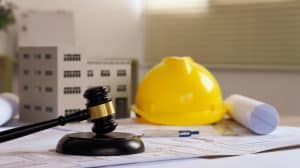Property owners in Florida face a tangled landscape of legal obligations, contracts, and possible disputes when managing a construction project. Whether you are building a custom home, renovating an existing property, or managing a commercial project, understanding Florida construction law can help you avoid costly mistakes and legal headaches.
Understanding Construction Contracts
A well-crafted construction contract serves as the cornerstone of a successful project. It must explicitly define the scope of work, project timeline, payment terms, and all parties’ responsibilities. In Florida, these contracts are subject to state-specific regulations, which include disclosure requirements and contractor licensing laws.
In general, these contracts should contain the following elements:
- Scope of Work: A detailed description of the work to be completed, including materials, labor, and specifications.
- Payment Terms: Clear guidelines on payment schedules, including deposits, progress payments, and final payment upon completion.
- Change Orders: A process for handling modifications to the original contract, ensuring all changes are documented and agreed upon.
- Dispute Resolution: Provisions for mediation, arbitration, or litigation in case of disputes between the owner and the contractor.
- Permitting Requirements: Ensuring compliance with local building codes and securing necessary permits before starting work.
Construction Defects and Warranty Protections
Florida property owners are protected against construction defects under both statutory and contractual warranties. Common construction defects include structural issues, water intrusion, electrical malfunctions, and code violations.
In addition, under Florida law, contractors are generally required to address defects under an express or implied warranty. The Florida Building Code also provides additional protections by setting strict construction standards that contractors must follow. If a defect arises, property owners must typically notify the contractor and allow them an opportunity to repair the issue before pursuing legal action.
Florida’s Construction Lien Law
One of the most critical aspects of Florida construction law is the Construction Lien Law. This law allows contractors, subcontractors, and suppliers to place a lien on a property if they are not paid for their work. While liens protect those who contribute labor and materials to a project, they can pose significant risks to property owners if improperly handled.
To protect yourself from unexpected liens:
- Always require lien waivers from contractors and subcontractors as payments are made.
- Verify that your contractor pays all subcontractors and suppliers to prevent surprise liens.
- Understand the “Notice to Owner,” which subcontractors must send to preserve their lien rights.
Failing to manage lien issues properly can result in legal battles and potential foreclosure of your property to satisfy unpaid debts.
Avoiding Common Legal Pitfalls
Construction projects are notorious for delays, budget overruns, and disputes. To
minimize legal risks, property owners should:
- Hire licensed and insured contractors to ensure compliance with Florida’s licensing laws.
- Keep thorough documentation, including contracts, invoices, emails, and photographs, to protect against disputes.
- Conduct regular site inspections to ensure work progresses according to plan and within code requirements.
- Seek legal guidance before signing any construction contracts or making significant changes to the project scope.
Contact St. Johns Law Group To Learn More About Construction Laws in Florida
While construction laws in Florida may seem overwhelming, you do not have to navigate them alone. At St. Johns Law Group, our experienced construction attorneys assist property owners with contract drafting, review, and negotiation to ensure their interests are protected. Whether you need help resolving a dispute, understanding lien rights, or ensuring compliance with state laws, we are here to provide trusted legal guidance. If you are planning a construction project or facing a legal issue related to construction law, contact St. Johns Law Group today for a consultation.

